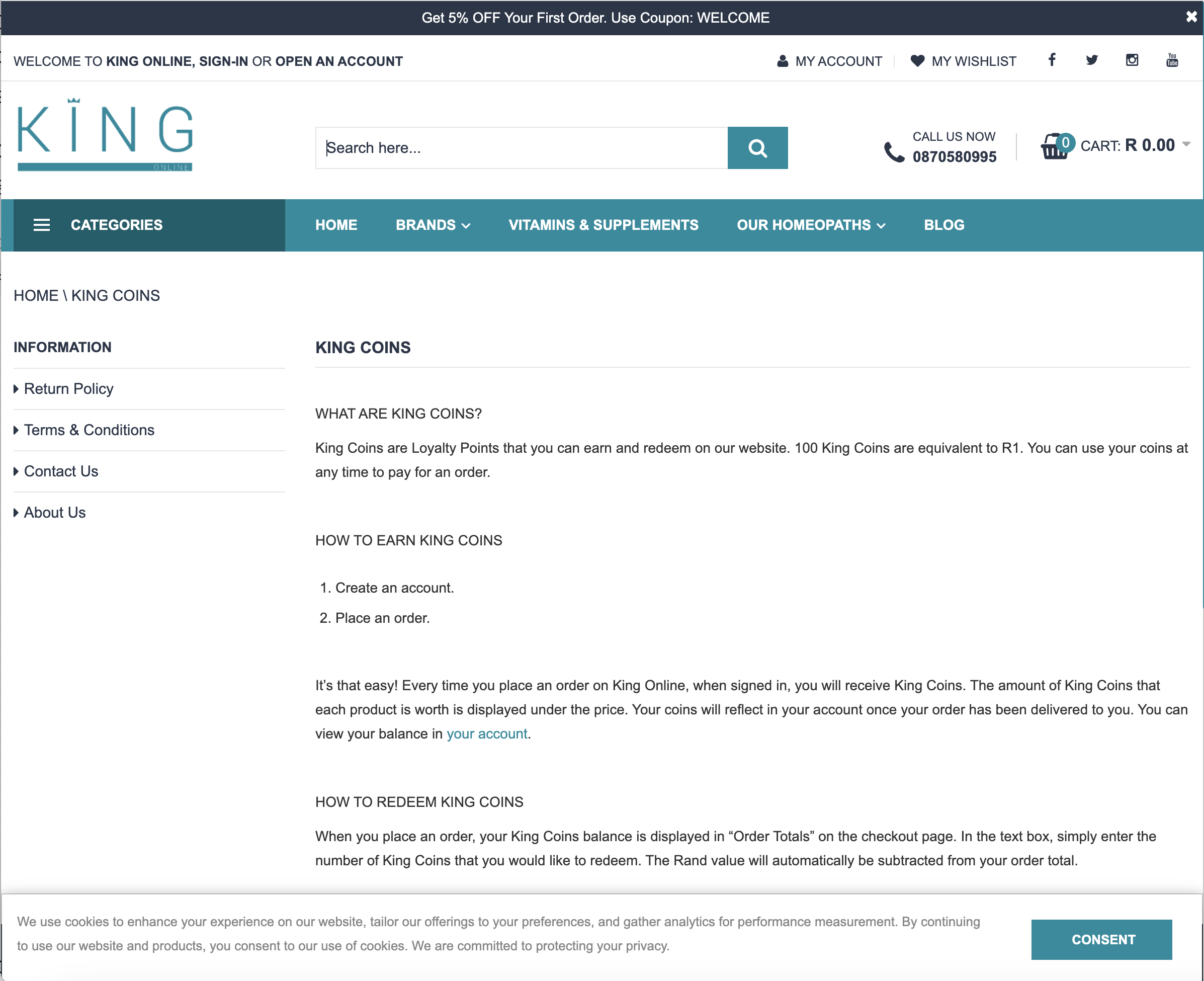KingCoins.org Scam Review – Crypto Investment Fraud Exposed
In the high-stakes world of online investments, digital platforms promising wealth, rapid returns, and revolutionary technology have become increasingly common. However, many of these platforms are expertly crafted scams, designed to extract funds from unsuspecting users before disappearing into anonymity. One such platform currently drawing attention for all the wrong reasons is KingCoins.org—a name that’s become synonymous with manipulation, deception, and financial fraud.
In this blog, we’ll unpack exactly how KingCoins.org operates, why it is a scam, and what tactics it uses to convince users to part with their money. Whether you’re researching the platform or already involved, this breakdown will give you the clarity you need.
What Is KingCoins.org?
KingCoins.org presents itself as a cryptocurrency investment and trading platform, boasting high returns, advanced AI-driven algorithms, and “guaranteed” daily profits. On the surface, it looks professional—complete with investment plans, live dashboards, and a sleek user interface. It offers “investment packages” in crypto, forex, and even arbitrage strategies, claiming to generate consistent returns for users.
But like many fraudulent platforms, the polished appearance is just a mask. Beneath the glossy design and high-tech jargon lies a ruthless scam with one goal: separating victims from their money.
The Deceptive Tactics of KingCoins.org
KingCoins.org follows a playbook similar to many high-yield investment scams. It operates with the appearance of legitimacy, using a mix of fake data, social engineering, and misleading design to trap users.
1. Guaranteed Returns That Defy Logic
KingCoins.org lures in users with promises of high daily or weekly profits. Depending on the “investment plan” chosen, users are promised returns between 5% and 20%—rates that no legitimate financial institution can sustainably offer.
These returns are guaranteed, not dependent on market conditions, and supposedly delivered through AI trading bots and “elite investor strategies.” But this is where the first red flag emerges: in real finance, high returns always come with high risk, and no investment firm can promise daily profit without facing volatility.
In KingCoins.org’s case, the profits shown to users are fabricated—a digital illusion displayed on the dashboard, unconnected to any actual trading or investment activity.
2. Fake Trading and Profits
Upon registering and depositing crypto (usually Bitcoin, Ethereum, or Tether), users can track their “earnings” through a live dashboard. It shows increasing balances, recent trades, and performance analytics. These elements create a sense of realism.
But behind the scenes, no real trading is occurring. The displayed numbers are scripted to grow over time, regardless of market conditions. It’s nothing more than a psychological tool to keep users engaged and motivated to invest more.
3. Sophisticated Social Engineering
Scam platforms like KingCoins.org don’t just rely on fake profits—they manipulate users emotionally and psychologically. Their tactics include:
-
Time-limited offers to create urgency (“Invest in the next 2 hours for a 15% bonus”).
-
Personal messages from fake account managers, offering “VIP access” or urging users to upgrade.
-
Fake testimonials and user reviews across the website, often using stock photos and made-up stories.
-
Referral commissions, designed to encourage users to bring in friends and family—feeding the scam with new victims.
These strategies are highly effective because they build trust, urgency, and social proof—all essential ingredients in a scam that thrives on deception.
4. Fake Customer Support
Another disturbing aspect of KingCoins.org is its initially responsive customer service. When users first join, support agents appear to be helpful and courteous. This builds confidence and gives the illusion that there are real people behind the platform.
However, once users begin questioning their profits, experience withdrawal issues, or stop depositing money, customer support becomes evasive, dismissive, or vanishes entirely. Many users report being blocked after voicing complaints or trying to warn others.
The Withdrawal Scam: How Victims Are Milked for More
While the platform lets users view increasing balances, the moment someone tries to withdraw real money, the scam becomes fully apparent. Here’s how they trap users further:
1. Sudden “Verification” or “Tax” Fees
Users are told they must pay a fee—often labeled as a “tax,” “transaction clearance,” or “security verification”—before any withdrawal can be processed. These fees are typically demanded in cryptocurrency and can range from 10% to 30% of the total account balance.
This is a common scam maneuver. The platform creates fake profit, then demands a real payment to release it. Once the fee is paid, the funds are still never released—and in many cases, the user is asked for another fee.
2. Account Suspension After Withdrawal Attempts
When users refuse to pay extra or push back, their accounts are conveniently “flagged,” “restricted,” or “suspended for suspicious activity.” Any support channels that were previously responsive go silent. Users are locked out entirely.
By this point, the platform has already achieved its goal: collecting as much crypto from the victim as possible before cutting off contact.
No Real Company, No Legal Standing
KingCoins.org provides no valid business registration, no verifiable team members, no company address, and no governing financial license. They may claim to be based in the UK, Switzerland, or Singapore—but those addresses are often fake or belong to unrelated businesses.
If they display license numbers or certification badges on their site, they are usually stolen from legitimate firms or entirely fabricated. A quick search of any so-called registration or license number reveals that it either doesn’t exist or is unrelated to KingCoins.org.
In short, this is not a regulated or legal company—just a cleverly disguised crypto siphon.
More Red Flags on KingCoins.org
A deeper look into the site reveals several technical and structural warning signs:
-
Domain age is less than a year, often registered anonymously.
-
No SSL or advanced site security, or poor certificate transparency.
-
Generic website content with buzzwords like “blockchain revolution” and “secure AI-backed investment.”
-
Grammatical errors and unnatural phrasing, indicating copy-pasted content from other scam sites.
-
No verifiable social presence, despite claiming thousands of users.
-
“Live profit” counters on the site that are easily spoofed or looped.
Each of these factors on their own could be dismissed, but together, they point clearly to a scam operation.
Why People Fall for It
What makes KingCoins.org particularly effective is its ability to mimic professional platforms. It’s not a sloppy or amateur scam—it’s carefully designed to appeal to emotions like hope, trust, and greed. By appearing structured, data-driven, and customer-oriented, it tricks users into believing they’re dealing with a legitimate investment vehicle.
Even seasoned investors can fall victim, especially when the platform offers initial “profits” and friendly customer service. Once a user becomes emotionally invested and sees their balance “grow,” the psychological trap tightens.
A Pattern Seen Before
KingCoins.org is not the first platform to use this approach. Scammers often run template-based scam operations, launching under different names every few months:
-
The structure remains the same.
-
The interface is re-skinned.
-
The promises are recycled.
-
The scam continues.
They typically operate for a few weeks or months, then disappear—only to return under a new name with a new domain.
The Real Impact: Financial and Emotional Devastation
What sets scams like KingCoins.org apart is not just the monetary loss—it’s the emotional toll on victims. People who invest in these platforms often do so with hope, sometimes using emergency savings or borrowed funds. When the truth emerges, the devastation is twofold: the financial blow and the deep sense of betrayal.
Victims frequently report:
-
Depression
-
Anxiety
-
Shame and self-blame
-
Broken trust in online investments
It’s a painful experience—and one these criminals count on people keeping silent about.
Final Verdict: Avoid KingCoins.org at All Costs
KingCoins.org is not a financial platform, not a trading company, and not a legitimate service. It is a fraudulent scheme designed to look trustworthy while systematically deceiving users, stealing their money, and vanishing without accountability.
No legitimate business offers guaranteed profits. No real company demands crypto fees to “release” your balance. And no registered investment firm operates in total anonymity.
If you’re considering investing in KingCoins.org, walk away. If you’re already involved, stop engaging immediately. These platforms are built to bleed you dry while pretending to work in your favor.
-
Report KingCoins.org and Recover Your Funds
If you have fallen victim to KingCoins.org and lost money, it is crucial to take immediate action. We recommend Report the scam to BOREOAKLTD.COM , a reputable platform dedicated to assisting victims in recovering their stolen funds. The sooner you act, the greater your chances of reclaiming your money and holding these fraudsters accountable.
Scam brokers like KingCoins.org persistently target unsuspecting investors. To safeguard yourself and others from financial fraud, stay informed, avoid unregulated platforms, and report scams to protect. Your vigilance can make a difference in the fight against financial deception.





